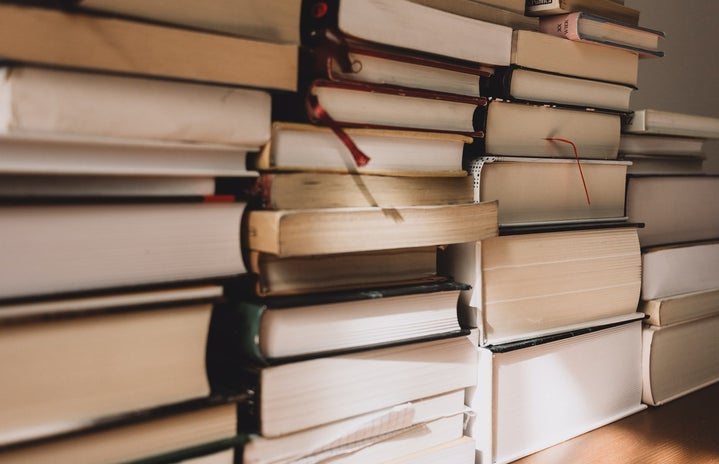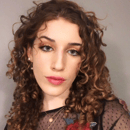Education is the gateway to the foundations of society – it determines how you conduct yourself, what values you live by, and whose side of the story you believe. As many American states and legislators ban books due to ‘inappropriate’ content, they shut down alternative narratives and opportunities to grow. Although politicians and legislators believe authors should abide by conservative political views, that is not their role. Authors are supposed to challenge, oppose, and raise public awareness on ideas that should be talked about. To assert censorship is to stop the progress of society, to limit children’s minds, and to instill the same damaging and oppressive political views in children that are supposedly going to “change” the world.
In the United States, conservatives increasingly pass bills that censor what books can be read in schools. For example, in Tennessee a school removed Maus, a children’s book on the Holocaust, from an 8th grade curriculum, and a Pennsylvania school removed Heather Has Two Mommies from school libraries (BBC, Vox). The Indiana State Senate approved a bill that enabled the prosecution of school librarians for giving “harmful” material to minors, while the Oklahoma legislature is debating a bill that would ban books on sexuality or gender identity from being offered in school libraries (BBC). Matt Krause, a Texas legislator, provided 850 books that might make students feel discomfort, guilt, or anguish “because of their race or sex” (BBC). Unsurprisingly, 97 of the first 100 books were written by minorities, including women, LGBTQ+ members, and other groups (BBC). Clearly, conservatives are in a frenzy to ban books as they see the dawn of a new generation of progressive parents and children who oppose the one-sided view of culture and history that privileges whiteness, heterosexuality, and masculinity.
Who decides what books we censor? Surely, the people who decide what books to censor today would decide on different books than one hundred years ago. To allow a group to censor books is to argue that they have superior moral, ethical, and intellectual abilities. To censor a book like Maus privileges a specific group that sees the teaching of Maus, a Holocaust-focused book meant for children, as less deserving of being taught than a European-focused historical textbook. The fact that most of the books being targeted are those that directly contrast and oppose a mainly white, colonist, and heterosexual framework is no mistake. As social media, companies, and the world become more open to increased representation of minorities, the conservative drive to stifle alternative and more progressive ways of thinking erupts. While parents retain the legal right to teach their children what they wish, schools are open educational facilities. They are places where children can gain the freedom and autonomy to learn and discover what they wish to. By censoring books that could help a young racialized child navigate their life or teach a young white child to be a better ally, we are actively telling young people that there is only one dominant history. Further, by centering conservative lenses of the world, we are telling progressive parents and advocates that their views do not matter, regardless of the continued issues of racist teachers, prejudiced bullying, and unethical Holocaust lessons.
Censoring books inevitably comes down to the type of view of the world that is dominantly presented. Yael Levin-Sheldon, a mother in Virginia, told BBC that the book, The Black Friend: On Being a Better White Person, is “racist” because “think of it saying, ‘on being a better black person’… ‘Would that be okay?’” (BBC). While Sheldon is one person in a range of groups that see censoring liberal books as “protecting” children, she represents the kind of misinformation and tainted history that guides these movements. By arguing that it is racist, she clearly misunderstands where the book comes from and the social and ideological impetus behind it. As racialized people continuously face racist microaggressions and incidents, they experience a radically different childhood than white children. Rather than white children who are relatively sheltered from racism until they are older, racialized children are exposed to racism at young ages. To assert that asking white children to be ‘better’ people is racist, Sheldon both denies a progressive program of making children better allies and people to their fellow peers, as well as denies the systemic racism and humanity of young racialized children who need their white peers to be more educated about racism. Sheldon’s group denies the progressive programs of many books, keeping in line with her comments, as they oppose the use of The Handmaid’s Tale and White Fragility in schools. So, sexism and misogyny, as well as white fragility, are off the table as well. Perhaps they will hurt someone’s feelings — that someone being a white boy rather than the racialized children and young girls taught to prioritize someone else’s feelings over their own security and equality.
What about racialized children who consistently have to read stories in which racialized identities are portrayed in racist and stereotypical ways because that ‘was the time’? What about children who are questioning their sexuality or gender identity, or who have parents that are not heterosexual? Do their rights matter – when they listen to story after story about heterosexual relationships? What about young girls who consistently read from stories that portray women in archetypal ‘dangerous’ or ‘weak’ roles? Most importantly, what happens when these children start to question the world around them? By censoring books, conservatives believe that it’s better for children to consistently submit to authority and dominant hegemonies rather than questioning and improving the world around them. In other words, they are constructing racist, sexist, and heteronormative ideologies in children that deny the realities and existence of other lives. Hiding books doesn’t make real marginalized people go away – rather, they make the lives of marginalized people even more difficult to endure. They support a dominant view that never changes, never modifies, never challenges, and never opposes restrictive and oppressive ideologies. Books are not just words on a page – they have power. Both sides clearly seem to recognize that. The question is: who holds the power?
The American frenzy to ban books does not help or protect children, but rather fosters the agenda of conservatives who would like to see a world in which marginalized identities do not speak, teach, or change systems. Rather than allowing children to discover their own views and identities, conservatives assert that silencing bills are healthier. While they claim to support children, they really only want control over their own children (the white, privileged, and heterosexual) while the other marginalized children are left to endure constant literary dialogues that exclude or derogatively depict them. For real change and real protection, children need freedom to read what they want, absorb what they enjoy, and actively develop critical thinking skills. Censoring books silences the vision of a more equal, more unified, and more peaceful world, while denying children their autonomy to develop as individual, unique agents of change.
Resources:
https://www.bbc.com/news/world-us-canada-60261660


